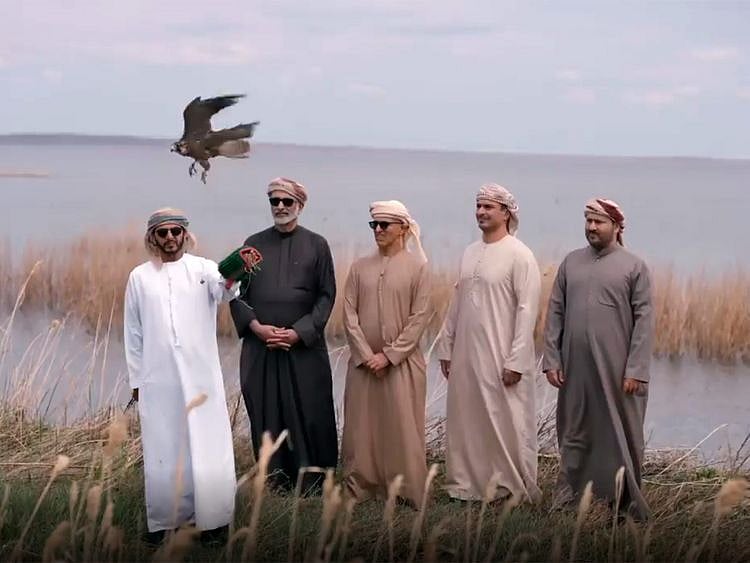Abu Dhabi-led project returns 2,000 falcons to the wild
This includes 71 birds in Kazakhstan under Sheikh Zayed Falcon Release Programme

Abu Dhabi: A falcon rehabilitating programme led by Abu Dhabi has returned 2,159 falcons to their natural habitats over the past 27 years. This includes 71 birds released into the wilds of Kazakhstan.
The Sheikh Zayed Falcon Release Programme, one of the largest wildlife conservation programmes globally, is supervised by Environmental Agency Abu Dhabi (EAD), in partnership with the International Fund for the Conservation of Houbara (IFCH) and the Abu Dhabi Falcon Hospital. The IFCH oversees field and technical aspects while the ADFH provides veterinary support.
Risks to falcons
Field studies and satellite tracking data indicates that falcons rehabilitated by the programme adapt extremely well, and can migrate over distances up to 43,000km. They also breed naturally, increasing their numbers in the wild and ensuring that future generations will be able to mitigate the risks they face in their natural habitats. These include urban sprawl, agricultural expansion, environmental pollution, climate change and unsustainable practices.
Satellite tracking
Among the birds recently released, 10 falcons were fitted with solar-powered satellite-tracking devices, which will monitor survival, propagation rates and traditional migratory routes, and help gather important scientific data for the development of preparation, training and release programmes.
“Based on the directives of the UAE leadership, Abu Dhabi continues to cement its pre-eminent global position in the conservation of nature and the protection of wildlife species. This includes our exceptional efforts to preserve falcons, houbara and other types of wildlife of environmental, cultural and historical importance, further increasing their opportunities for survival and enabling their prosperity in nature,” said Mohammed Al Bowardi, vice chairman of the EAD board of directors and the IFCH.
Sign up for the Daily Briefing
Get the latest news and updates straight to your inbox
Network Links
GN StoreDownload our app
© Al Nisr Publishing LLC 2026. All rights reserved.